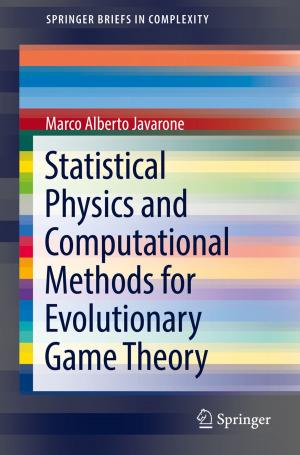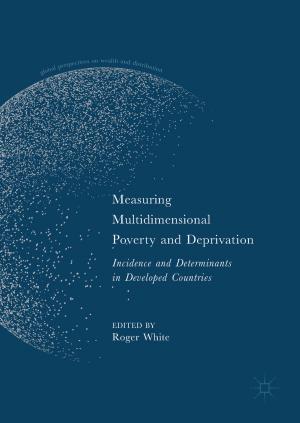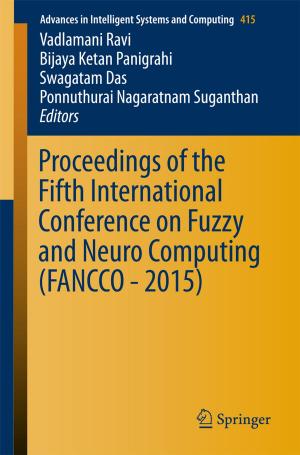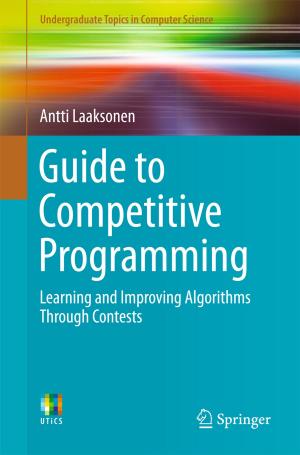Bursty Human Dynamics
Nonfiction, Science & Nature, Science, Other Sciences, System Theory, Computers, Database Management, Social & Cultural Studies, Social Science| Author: | Márton Karsai, Hang-Hyun Jo, Kimmo Kaski | ISBN: | 9783319685403 |
| Publisher: | Springer International Publishing | Publication: | December 5, 2017 |
| Imprint: | Springer | Language: | English |
| Author: | Márton Karsai, Hang-Hyun Jo, Kimmo Kaski |
| ISBN: | 9783319685403 |
| Publisher: | Springer International Publishing |
| Publication: | December 5, 2017 |
| Imprint: | Springer |
| Language: | English |
This book provides a comprehensive overview on emergent bursty patterns in the dynamics of human behaviour. It presents common and alternative understanding of the investigated phenomena, and points out open questions worthy of further investigations.
The book is structured as follows. In the introduction the authors discuss the motivation of the field, describe bursty phenomena in case of human behaviour, and relate it to other disciplines. The second chapter addresses the measures commonly used to characterise heterogeneous signals, bursty human dynamics, temporal paths, and correlated behaviour. These definitions are first introduced to set the basis for the discussion of the third chapter about the observations of bursty human patterns in the dynamics of individuals, dyadic interactions, and collective behaviour. The subsequent fourth chapter discusses the models of bursty human dynamics. Various mechanisms have been proposed about the source of the heterogeneities in human dynamics, which leads to the introduction of conceptually different modelling approaches. The authors address all of these perspectives objectively, highlight their strengths and shortcomings, and mention possible extensions to them. The fifth chapter addresses the effect of individual heterogeneous behaviour on collective dynamics. This question in particular has been investigated in various systems including spreading phenomena, random walks, and opinion formation dynamics. Here the main issues are whether burstiness speeds up or slows down the co-evolving processes, and how burstiness modifies time-dependent paths in the system that determine the spreading patterns of any kind of information or influence. Finally in the sixth chapter the authors end the review with a discussion and future perspectives.
It is an ideal book for researchers and students who wish to enter the field of bursty human dynamics or want to expand their knowledge on such phenomena.
This book provides a comprehensive overview on emergent bursty patterns in the dynamics of human behaviour. It presents common and alternative understanding of the investigated phenomena, and points out open questions worthy of further investigations.
The book is structured as follows. In the introduction the authors discuss the motivation of the field, describe bursty phenomena in case of human behaviour, and relate it to other disciplines. The second chapter addresses the measures commonly used to characterise heterogeneous signals, bursty human dynamics, temporal paths, and correlated behaviour. These definitions are first introduced to set the basis for the discussion of the third chapter about the observations of bursty human patterns in the dynamics of individuals, dyadic interactions, and collective behaviour. The subsequent fourth chapter discusses the models of bursty human dynamics. Various mechanisms have been proposed about the source of the heterogeneities in human dynamics, which leads to the introduction of conceptually different modelling approaches. The authors address all of these perspectives objectively, highlight their strengths and shortcomings, and mention possible extensions to them. The fifth chapter addresses the effect of individual heterogeneous behaviour on collective dynamics. This question in particular has been investigated in various systems including spreading phenomena, random walks, and opinion formation dynamics. Here the main issues are whether burstiness speeds up or slows down the co-evolving processes, and how burstiness modifies time-dependent paths in the system that determine the spreading patterns of any kind of information or influence. Finally in the sixth chapter the authors end the review with a discussion and future perspectives.
It is an ideal book for researchers and students who wish to enter the field of bursty human dynamics or want to expand their knowledge on such phenomena.















